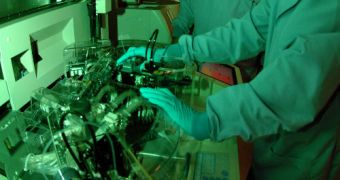Scientists were recently able to demonstrate that older siblings in a family are more likely to develop, or be born with, food allergies than their younger brothers or sisters. The new study is very important because of the large incidence of allergies in the general population around the world.
For this investigation, experts looked at the incidence of food allergies in families with several children. They divided participants in firstborns, second-born and so on, and then analyzed each group's susceptibility to common allergens in usual foods.
It was determined that around 4 percent of firstborns suffered from the condition, whereas only 3.5 percent of second-born kids displayed the affliction. In the case of those born third or later, the incidence dropped to 2.6 percent.
While analyzing the results, experts also determined that firstborn were also more susceptible to related conditions, including allergic rhinitis (itchy, running noses) and conjunctivitis (eyelid inflammations).
The same susceptibility was not discovered in those born second or later. On the other hand, experts found no connection between birth order and chances of developing diseases such as asthma or atopic dermatitis, a condition that creates a type of eczema on the body.
According to researchers from the Shiga Medical Center for Children in Shiga, Japan, more than 13,000 kids were investigated before these conclusions were made. All of the participants were aged between 7 and 15.
Details of the work were presented to scientists attending the Annual Meeting of the American Academy of Allergy, Asthma and Immunology in San Francisco, on March 20, LiveSceince reports.
The team hypothesizes that changes in the prenatal environment, including the womb, may be responsible for the increased resilience that those born later exhibit. Changes in the mothers' immune systems are also high on the list of investigations.
However, the Japanese experts say that more research is needed in order to understand precisely what is going on. They say that discovering the mechanisms at work in underlying this immunity could have significant public health benefits.
They could for example be mimicked for firstborns as well, analysts say, therefore contributing to the strain that allergies place on national healthcare systems around the world.

 14 DAY TRIAL //
14 DAY TRIAL //